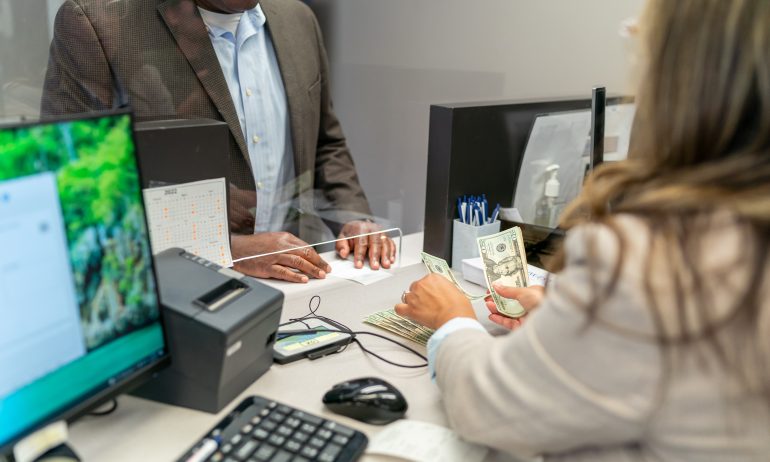Can I Cash a Check at Any Bank?
Not every bank and credit union will cash checks if you aren't a customer, so you’ll need to evaluate your options.

Many, or all, of the products featured on this page are from our advertising partners who compensate us when you take certain actions on our website or click to take an action on their website. However, this does not influence our evaluations. Our opinions are our own. Here is a list of our partners and here's how we make money.
Money transfer services like Zelle, Venmo and Cash App have risen in popularity, but there are still occasions where you might receive a paper check. If you don’t have a bank account or if you don’t currently have access to your bank, you might need to find a way to cash a check that doesn’t involve your bank’s services, such as using a different bank or credit union, retailers or standalone check cashing services.
Can I cash a check at any bank?
The short answer is no, you can’t cash a check at any bank. If you have an account at a particular bank, it’s best to cash a check with that bank. But if you don’t have a bank account — or if your bank isn’t currently accessible to you — and you go to a bank or credit union where you aren’t a customer, those institutions aren’t obligated to cash your check.
There are exceptions, however.
The Consumer Financial Protection Bureau says that a bank or credit union may choose to cash your check at a branch if the following circumstances apply:
The check is written by one of their account holders.
There is money in the account to cover the check.
The check isn't more than six months old.
You are the payee shown on the check.
You show proper government ID, such as a driver’s license.
The bank or credit union may also charge a fee to cash the check.
Which retailers offer check cashing?
Some retailers offer check-cashing services. Walmart, for example, offers check cashing, including cashing of personal checks up to $200, payroll checks, government checks, tax refund checks, cashiers’ checks, insurance settlement checks and 401(k) checks. Keep in mind that there may be a fee of $4, $6 or $8 depending on the type of check, and there are varying limits on the dollar amount you can cash, usually based on the check type, time of year and your state of residence.
There are plenty of grocery stores, such as Ralph’s and H-E-B, that allow check cashing — also typically for a fee — so check with your local grocery if you’re interested in that service.
You can also consider stand-alone check-cashing services, such as Check City or Moneytree. These stores may charge a flat fee or a percentage of the check amount.
What is the fastest way to cash a check?
The fastest way to cash a check is to go to the closest check-cashing service, whether that’s your bank or a retailer. If you want to avoid fees, however, you may want to go to a branch of your bank. If you don’t have a local bank account, you might choose to open one. If your banking history disqualifies you from opening a typical checking account, you may want to look into getting a second chance checking account instead. These accounts are designed to help you access banking services, like check cashing, while clearing up any issues in your banking history.
Another route you can consider is a Bank On account. These accounts are offered by banks and credit unions that have joined a coalition committed to offering low-cost deposit accounts that help you pay bills and save. These accounts typically don’t allow overdrafts, and therefore don’t have overdraft fees, which helps keep account costs low.
“If you don’t have a bank account or have had financial difficulties, including challenges managing a checking account, a Bank On account is a great place to start or rebuild your banking relationship,” said Sarah Grano, a spokesperson with the American Bankers Association, via email. “Bank On accounts are easy to open and can help you build a strong financial foundation that not only gives you access to cash, but helps you pay bills, make purchases and save money for an emergency.”
As another option, you can sign the check over to someone else, such as a friend or family member, so they can cash it for you. To sign over — or endorse — the check to someone else, sign the back of the check in the endorsement area, write “pay to the order of” and the recipient’s name, then give the check to your recipient. Then, your friend or family member can cash the check at their bank and give you the cash.
